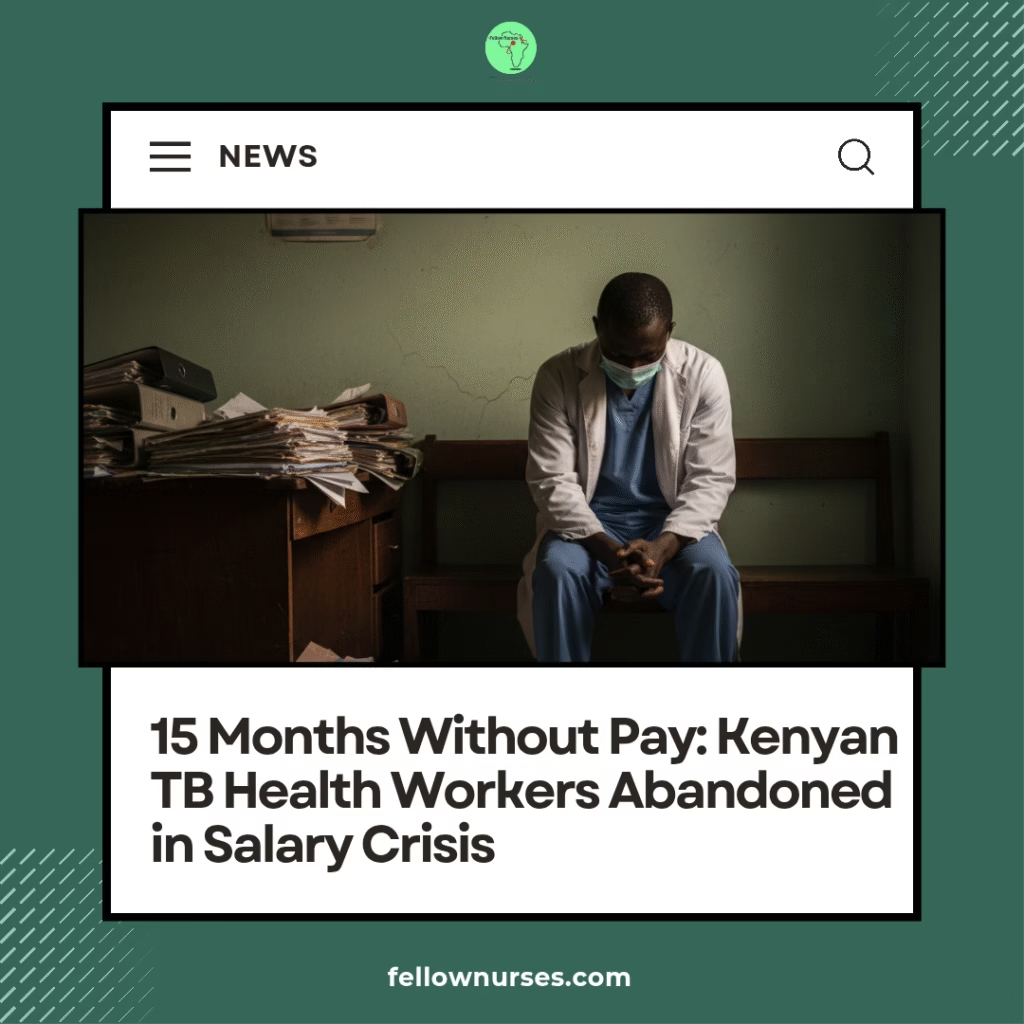
Kenya’s tuberculosis (TB) frontline workers are raising alarm after enduring 15 months without pay, despite promises of absorption into permanent government positions. Clinical officers and laboratory technologists, once supported by the Global Fund, now find themselves trapped in financial hardship and professional neglect as the transition to government payroll stalls.
Lucy Kigumo, a clinical officer stationed at Dandora 1 Health Center, recalls her last salary in June 2024. Since then, she and 90 colleagues posted across county facilities have survived on borrowed money, support from spouses, or depleted savings. Each is owed at least Sh1 million.
“We see up to 50 TB patients in a day. Yet while civil servants alongside us get paid, we are left with nothing. Some colleagues have fallen into debt, and the stress has even led to tragedy, with one worker taking her own life and that of her daughter,” Kigumo said.
The workers were employed under renewable contracts by the Ministry of Health in partnership with the Global Fund. When donor funding ended in December 2023, the government pledged to absorb staff permanently. However, only 25 officers in national facilities were integrated. The remaining 91 in county facilities were left behind.
The Ministry of Health paid six months’ arrears in June 2024 and assured workers of a smooth handover to county governments. But counties claim they lack funds, and the necessary payroll data has yet to be transferred. In September 2024, the Council of Governors confirmed counties needed Sh136 million to absorb the staff. Despite appeals from the Public Health Principal Secretary in January 2025, funding has not materialized.
For workers like Jackline Omae, a lab technologist, the consequences are devastating. “I have a daughter with a chronic condition requiring Sh16,000 monthly medication. She is also in university and has been told to clear her fees by October 3 or miss exams. I cannot afford it,” she said.
Union leaders argue that the crisis is a failure of political goodwill, not resources. The Kenya Union of Clinical Officers says it has petitioned Parliament and engaged the Health Cabinet Secretary, but counties continue to evade responsibility.
Meanwhile, TB patients remain at risk. Kenya still battles one of the highest TB burdens in Africa, and health workers at the heart of this fight are being pushed to the brink. Without urgent intervention, the country risks losing skilled personnel to burnout, migration, or worse.
The story of these 91 workers is more than a payroll delay. It is a test of Kenya’s commitment to universal health coverage, disease control, and the dignity of healthcare workers.
Until their pay is restored and contracts secured, the message to frontline workers is painfully clear: their service is valued in words, but not in action.
Fellow Nurses Africa is the independent voice of African nursing. We educate, inform and support nurses across Africa.










